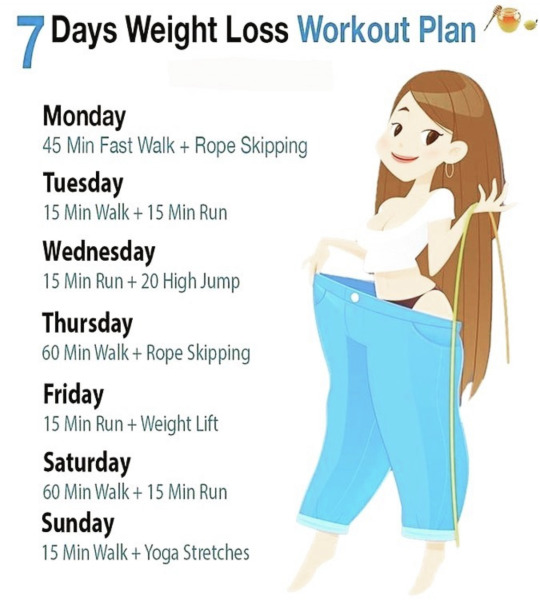Text
How to Lose Weight Quickly and Safely
According to the Centers for Disease Control and Prevention, more than 70% of American people are obese or overweight. Those who wish to reduce weight as rapidly as possible must consider an essential question: How can you lose weight quickly and safely?
"Creating a continuous calorie deficit with balanced meals and physical activity is the quickest method to lose weight," says Gaby Vaca-Flores, a certified dietitian and founder of Glow+Greens, a nutrition and skin care consultant headquartered in Santa Monica, California.
While it is undoubtedly feasible to restrict calories sufficiently to lose a significant amount of weight in a week, Vaca-Flores advises against choosing the most severe diet. "Although you may notice quick results at first, a weight reduction plateau may be just around the corner due to a slowing of your metabolism," she warns.
This slowing, also known as metabolic adaption and sometimes referred to as "starvation mode," occurs when fast weight loss, sometimes known as a crash diet, confuses your body into believing you're hungry.
“The body requires energy – calories – to power basic biological functions, including digestion, breathing (and) pumping blood through the body, along with the activity you do throughout the day,” explains Mia Syn, a registered dietitian based in Charleston, South Carolina, and author of “Mostly Plant-Based.” “When you don’t consume enough energy from food for these functions, you can put your health at risk.”
👉Need Help Dropping That Weight…CLICK HERE 👈
To compensate in a restricted calorie environment, the body adapts to using fewer calories each day to function. This leads to a slowing in metabolism, which makes it even more difficult to lose weight and ultimately leads to rebound weight gain.
Cutting calories too dramatically can also result in muscle loss, which exacerbates the situation. Muscle burns more calories at rest than fat because it is more metabolically active. If your body begins to break down muscle to fuel its essential activities, your metabolism will decrease even more, making reducing weight and keeping it off long term challenging.
Rapid Weight Loss Might Result In Rebound Weight Gain
If you've followed dietary advice and lost a considerable amount of weight only to have it return, you're not alone. It's not your fault either. The human body is built to preserve as much balance as possible; when you lose weight, your metabolism adapts because the system believes food shortage has become a threat to existence.
Because the body prefers to maintain weight, a gradual strategy to decreasing excess pounds is preferable than suddenly reducing calories. "It's preferable to pace your weight reduction by eating just enough calories to maintain a deficit while satisfying the majority of your body's energy demands," Vaca-Flores advises. "This will assist keep your metabolism running smoothly."
👉Need That Extra Help Losing Weight Click Here To Check Out This Amazing Video👈
Determining the number of calories you need to eat to meet that rate of weight loss will depend on several factors, including your age, starting weight, activity level and sex. Candace Pumper, a staff dietitian with the Ohio State University Wexner Medical Center in Columbus, says, “The Academy of Nutrition and Dietetics position statement on adult weight management recommends 1,200 to 1,500 calories per day for women and 1,500 to 1,800 calories per day for men to support weight loss.”
She notes, however, those guidelines are “not meant to substitute for professional nutritional advice or treatment. It’s recommended individuals follow the advice of their dietitian’s guidance regarding appropriate calorie intake, as many factors affect calorie needs.”
Furthermore, "if you lose weight too rapidly, you'll undoubtedly have drops in your energy levels and even headaches, which might make it difficult to keep on track," Vaca-Flores adds. "This usually happens when you don't eat enough or over-exercise."
Rapid weight loss may be necessary only under exceptional conditions. "A extremely low-calorie diet is occasionally prescribed for individuals who are obese and need to reduce weight for health reasons or before undergoing weight-loss surgery," Syn explains. The diet is "only followed for a limited amount of time and under the supervision of a doctor or dietician" in certain instances. If you want to reduce weight rapidly, she recommends "working with and being overseen by a health care practitioner."
Other Weight Loss Alternatives
While many individuals desire to lose weight quickly without exercising, it's vital to remember that exercise may help you kickstart weight loss and keep it off in the long run; remember, muscle is more metabolically active than fat and can help you maintain your weight. According to a 2021 review research published in the journal iScience, exercise is more significant for longevity and health benefits than weight loss.
Bariatric or weight reduction surgery, as well as other methods of medically supervised weight loss, can assist persons who are extremely overweight in losing weight safely and permanently. These tactics, however, are not necessarily quick means to success and may need patience.
👉Click Here To Check Out This Powerful Weight Loss Video 👈
#lose weight#i need to lose so much weight#i need to lose weight#i need to lose this weight#lose weight quickly#safe weight loss#i need help#pls help#weight loss help#help losing weight#click here#weight loss#research#weight loss research#healthier lifestyle#health#health help#help me#weight loss impulse
2 notes
·
View notes
Text

Check out this 7-day exercise routine that requires little more than an hour of your time. Also, click the link below to join our email list. Have access to a fantastic supplement to help you lose that stubborn weight and for future offers and help on losing weight. 
#lose weight#i need to lose so much weight#need to lose weight#need to lose more weight#help#weight loss help#weight lose challenge#weight loss impulse#weight#workout#workoutroutine#exercise#weight loss exercise#lose belly fat#belly fat#I need help#video
3 notes
·
View notes